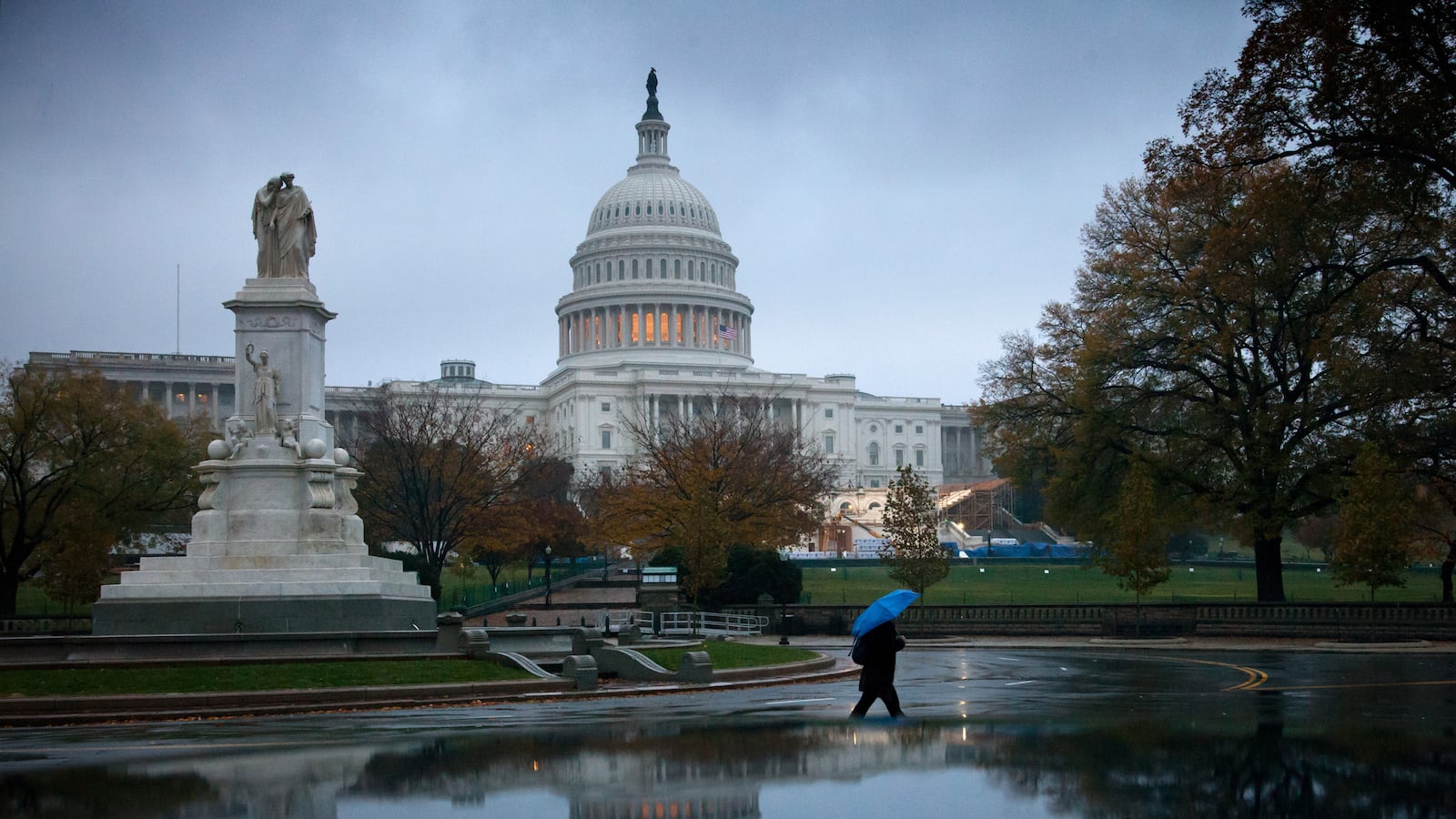The fiscal cliff hostage situation, which commenced the day after President Obama won reelection, has now entered its seventh day. If Congress and the White House are unable to come to an agreement before Jan. 1, the Bush-era tax cuts on income, capital gains, and dividends will expire and revert to much higher levels, while automatic spending cuts will hit defense contractors and other Republican-friendly industries.

While both sides clearly have something to gain from averting the fiscal cliff, President Obama essentially holds all the cards. If he refuses to engage, taxes on everybody—but especially the wealthy—will rise sharply and then Republicans will have to come ask for tax cuts. And so Republicans are starting to get antsy.
On Monday, we documented how Republican operatives and politicians were beginning to make overtures and concessions. Within the space of a few days, the official GOP position seems to have moved from “no increased revenues” to “increased revenues through eliminating deductions.” William Kristol, an outlier with no political authority, suggested that Republicans stop trying to shield people who make more than 1 million dollars annually from higher marginal tax rates.
You know you’re winning a negotiation when the opposite side keeps inching closer to your position while you continue to stake out a more maximalist approach. And that process continued on Tuesday.
Last week, Glenn Hubbard, dean of the Columbia Business School, was a key Romney adviser and a potential Federal Reserve chairman in waiting. This week, not so much. So this morning, Hubbard took to the Financial Times to offer his solution. And in a sign of how quickly things have changed, his first suggestion was to soak the rich. In his op-ed, Hubbard stuck to the current Republican position that we don’t need to raise marginal tax rates. Rather, he said, the U.S. can raise average tax rates by getting rid of the deductions that the rich use to such great effect. Such changes should be coupled with spending cut to take place over 10 years and long-term entitlement reforms.
At first blush, there’s not much new here. But you have to read between the lines to detect the nuance. To me, it is significant that Hubbard, perhaps the leading establishment GOP economic thinker, led with tax increases. (Typically, when they concede the need for more revenues, they do so only after describing the cuts necessary to bring the budget into balance.) Second, look at the way he talks about enhanced revenues. Not too long ago, GOP orthodoxy held that the problem with the tax code was that the poor and middle class didn’t pay enough taxes, and that the wealthy already paid too much. That’s out the window. “The first step is to raise average (not marginal) tax rates on upper-income taxpayers,” [my italics] Hubbard wrote. “This means closing loopholes.” He then cites with approval proposals to limit certain deductions for “upper-income households” and proposals to cap “the amount of deductions relative to a taxpayer’s income.”
Both the position and the rhetoric mark a significant shift from where Hubbard was a week ago.
Based on the experience of the last several years, Republicans have a right to expect that President Obama would be happy to meet them half way. But while some Democrats have responded favorably to the Republicans’ new attitude on increasing revenues by capping deductions on the wealthy, there isn’t much sign that Obama and the Democrats are willing to roll over on the subject of tax rates.
Tuesday morning, on The New York Times op-ed page, Robert Rubin, the former Goldman Sachs and Citigroup honcho and Clinton-era Treasury secretary, essentially encouraged President Obama to move the goalposts away from the Republican position. Sure, he noted, there seems to be a consensus for raising more money by getting rid of tax breaks. Doing so “may seem like a politically attractive alternative to raising tax rates or cutting entitlements of other spending.” But, he noted, the devil is in the details. The tax breaks that would need to be cut to raise revenue “are important and popular policy programs on which people now rely,” Rubin accurately noted. Items like the home mortgage interest deduction, the deduction for charitable donations, and the deduction businesses take for health insurance for their employees are deeply embedded in our economic life. It would be enormously disruptive, and unpopular, to uproot them over night.
Rubin’s advice? Leave the deductions where they are for most people, and just soak the rich through a more direct manner—by raising “the topmost brackets to their Clinton-era level.” Just let the Bush tax rates on marginal fade away, as they were designed to do, and it will bring in more income in a much less disruptive fashion than, say, getting rid of the mortgage interest deduction. It’s good economics, and good politics, Rubin argues. “When you compare raising he marginal rates for roughly 2 million Americans to phasing out health insurance exclusions that would affect 150 million Americans—even if some reform should be done—I don’t think it’s a close call substantively or politically.”
So Rubin essentially sees Hubbard’s proposal, and says: we’ll raise you. We’ll take the cuts in tax expenditures that benefit the wealthy, and then we’ll raise their marginal rates, too.
Now, Rubin isn’t part of the Obama inner circle. But many of the key players in Obamaland, like Office of Management and Budget Director Jack Lew and National Economic Council Director Gene Sperling, are Rubinites. And we shouldn’t be surprised if they follow his lead on this issue. For Democrats, the logic of Rubin’s argument is compelling. So, too, is the tactic he describes.




